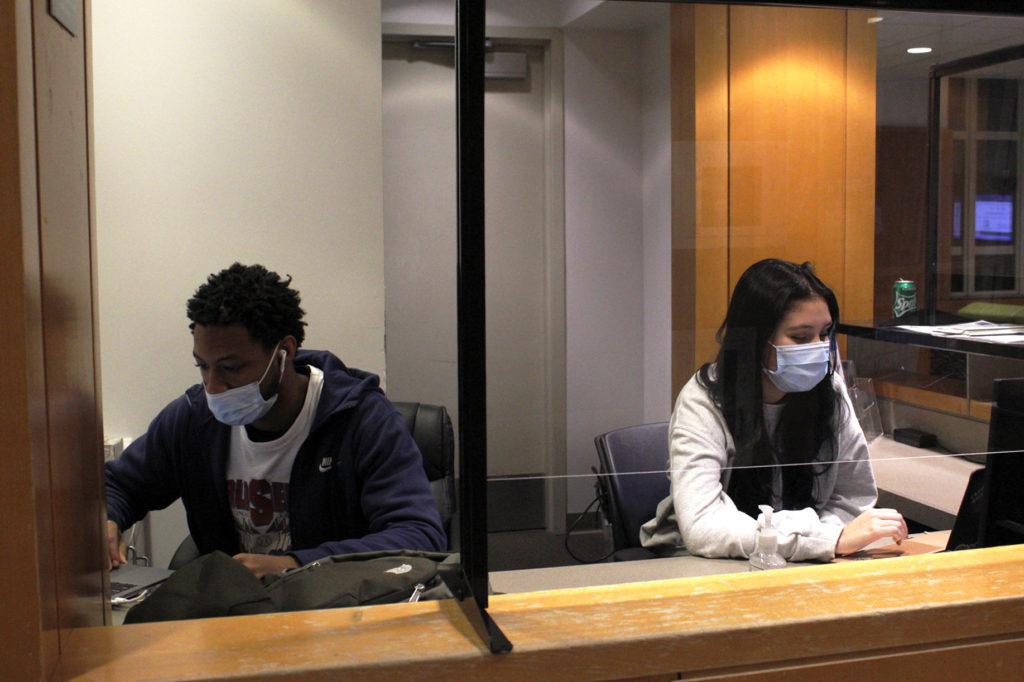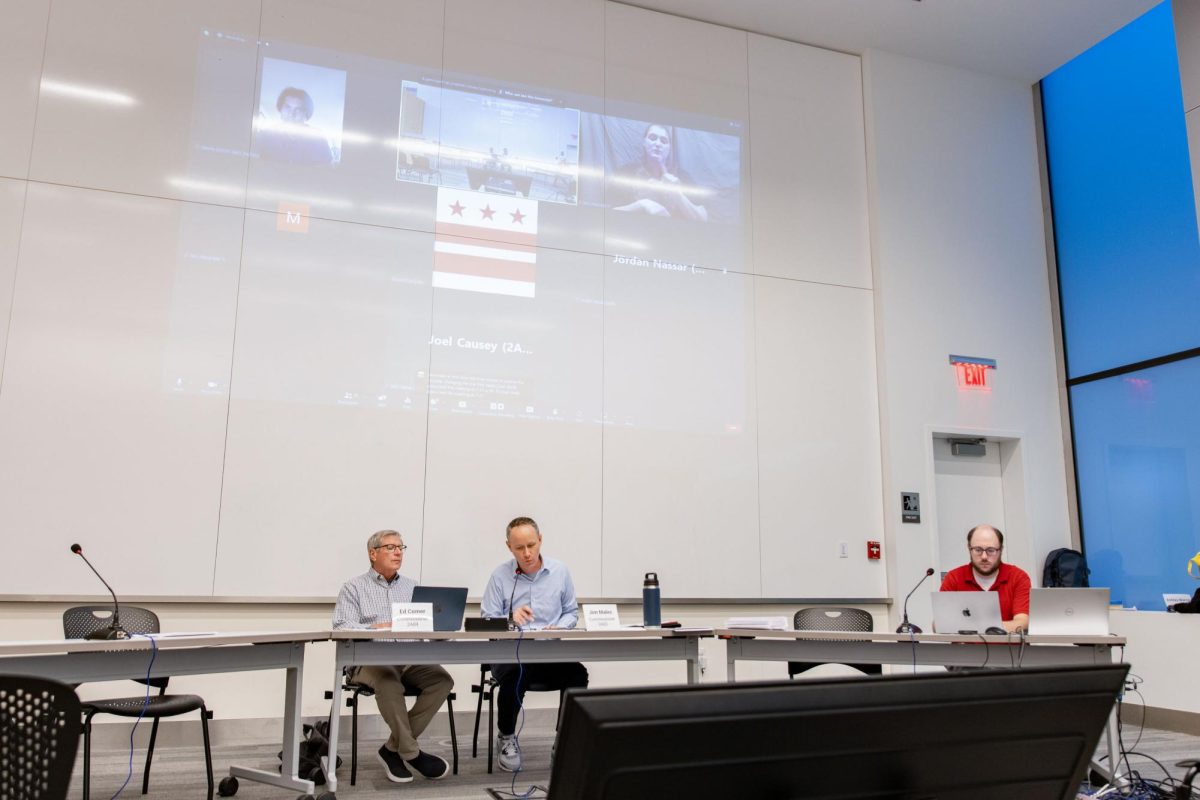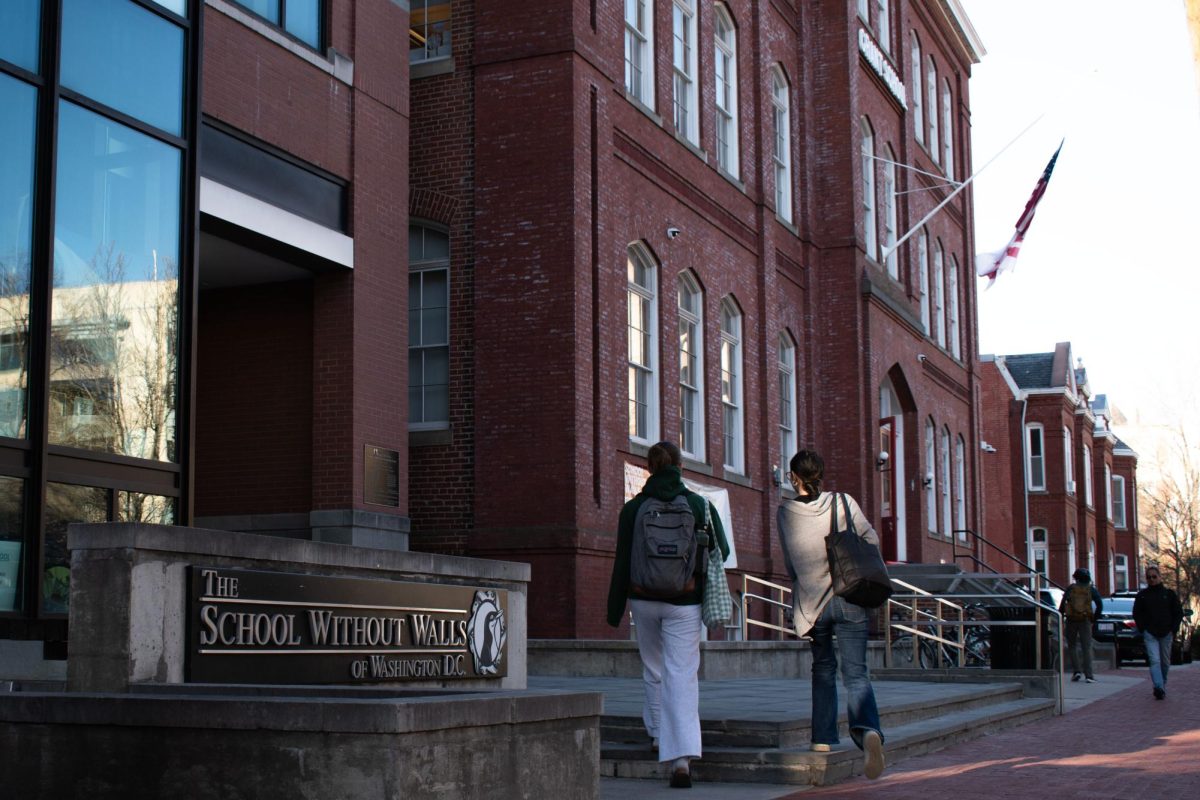Students are working at front desks for the first time since the start of the COVID-19 pandemic – but this time in a different role from the previous student access monitor positions.
About 100 operations assistants – one of the eight new Student Affairs and Campus Living and Residential Education positions created this year after the elimination of resident advisers – will help students navigate campus services and act as customer service representatives for nine residence halls across campus. Officials said these positions are not meant to be security personnel but instead offer a “welcoming face” at the front desks of these buildings.
University spokesperson Crystal Nosal said the operations assistants are centered on “Neighborhood Hub” sites, located in larger residence halls, which offer students a range of miscellaneous resources, including blue carts, masks, bandages, chargers and games.
“Our operation assistants work alongside our community coordinators in the hubs to help residential students who visit the hub,” Nosal said. “Our student workers help to create a warm and welcoming environment at our hub sites while serving as a resource for residents who may have questions about living in the halls or how to access another campus resource.”
Student access monitors previously staffed residence hall desks until the pandemic, where they acted a first line of security, recording everyone who entered the building and restricting access to students and their guests. Officials contracted Allied Universal Security during pandemic shutdowns to assign officers to monitor building lobbies while the student access monitor positions were inactive.
Operations assistants are scheduled in revolving shifts, switching out every few hours starting from 4 p.m. and ending at midnight in District and Potomac houses, The Aston, the Webb Building and Amsterdam, JBKO, Shenkman, South and Mitchell halls.
Fryda Cortes, a junior majoring in political science and sociology who is working as an operations assistant in The Aston and District House, said the operations assistant program does not foster the same sense of “community” or offer the same level of information about resources that the RA program did, especially for freshmen and sophomores who are less familiar with campus resources.
“I feel like it’s not really establishing that sense of a community that an RA was supposed to offer, and I feel like that’s mostly felt by first or second-year students,” Cortes said.
She said operations assistants receive less compensation than RAs, making it difficult for students who were relying on free housing and higher compensation as an RA to remain financially stable. Operations assistants earn about $15.20 per hour, according to a university job posting, while RAs received a salary and free housing.
“I took up this job because I was supposed to be an RA, and then it got cancelled,” she said. “As a student who was relying on the RA system for housing, I feel like this is just a Band-Aid on a bullet wound.”
Cortes said operations assistants in some Neighborhood Hubs, like District House, have access to panic buttons to alert GWPD of emergencies, but the buttons are missing from more recently established hubs, like The Aston.
“I’ve felt pretty safe working here,” she said. “Both in The Aston and in District, sometimes I’ll have the 10 p.m. to 12 p.m. shift, and I still feel pretty safe.”
Adedasola Adeniyi, a sophomore studying international affairs and an operations assistant in District House, said she starts her shift reviewing the residence hall’s communications sheet to start addressing various student concerns and refer issues to the relevant administrator.
“The sheet contains different interactions with students, so we can see what’s genuinely going on and what concerns people have,” she said. “And if something needs to be done, we do that, and if we have any administrative tasks to do, we do that.”
She said having operations assistants and a recognizable face at the front of residence halls may increase the sense of community and safety from students, especially in the absence of formal RAs.
“A big part of our job is to create a welcoming environment, even just saying hi to everyone who passes us so they feel a sense of community,” she said. “So I would think, as a student, that contributes to people’s feeling and just knowing that if something goes wrong – because the RA position isn’t here anymore, and your community coordinator might not be in the room – but there’s always someone at the desk at this time.”
Mackenzie Gabriel-Lazette, a sophomore studying international affairs and an operations assistant in District House, said student employees stationed in residence halls can help students call EMeRG and other administrative resources to improve student health and safety.
“A lot of students obviously don’t know about our resources,” Gabriel-Lazette said. “Sometimes they might not know who to call for EMeRG, or the fact that we have phone numbers for the administrators on call, so if there is some sort of situation, students don’t always know exactly where to go or what to do.”
She said operations assistants have taken on more administrative and organizational tasks like maintaining residence halls as the semester has progressed, instead of communications and customer services responsibilities.
“It’s been added that we have more administrative tasks that the community coordinators will give us,” she said. “So sometimes it’ll be like ‘Go fetch candy for Halloween and go into the dorm,’ or to remind you to take down posters every week.”







